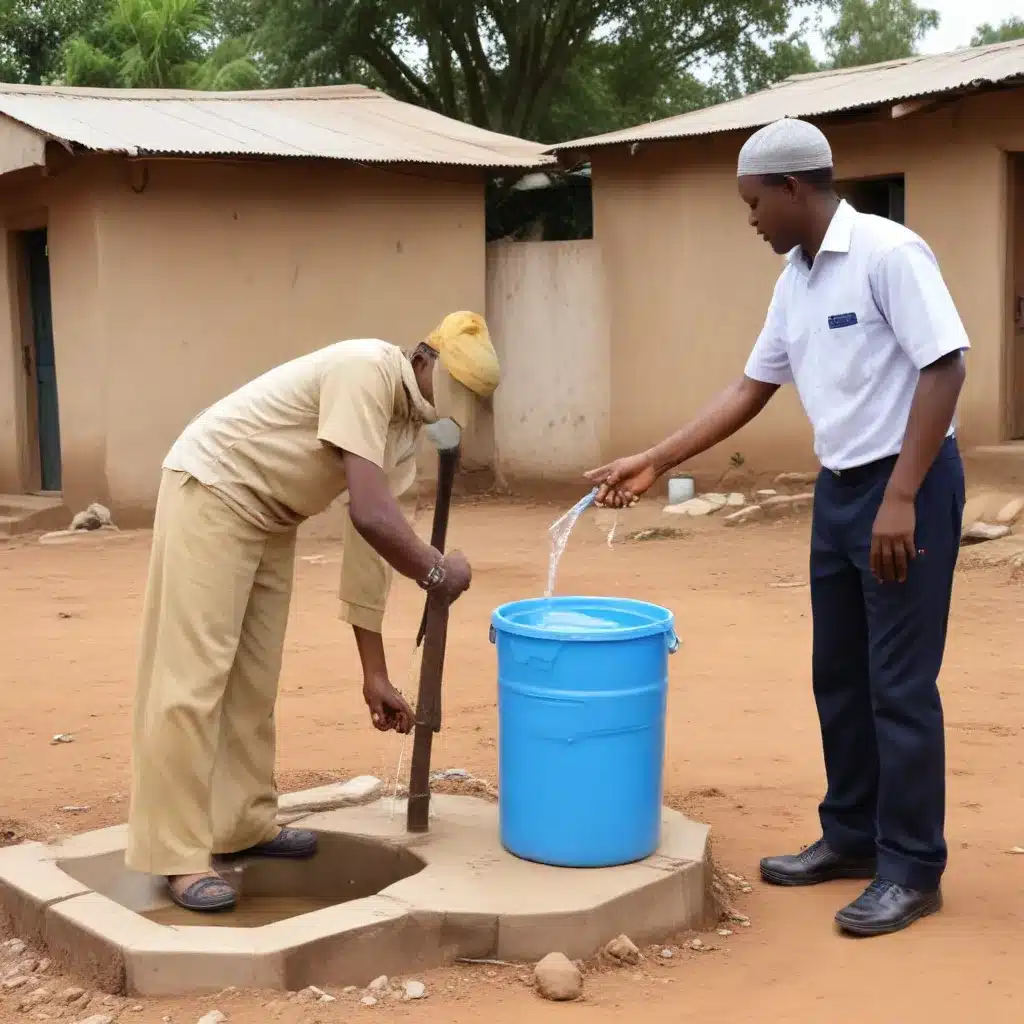
Championing Community-Centric WASH Initiatives
In India, where over 1.3 billion people reside, the quest for universal access to water, sanitation, and hygiene (WASH) services remains an immense challenge. Despite government programs and policy commitments, deeply entrenched social barriers and marginalization continue to hinder equitable WASH service delivery, particularly for the most vulnerable populations.
Community participation and engagement have emerged as vital strategies to overcome these challenges and ensure WASH programs are responsive to local needs. By actively involving communities, especially marginalized groups, in the design, implementation, and monitoring of WASH initiatives, we can unlock the path to more inclusive and sustainable service delivery.
The Water for Women partnership between the Centre for Advocacy and Research (CFAR) and the Australian government exemplifies how community-centric approaches can drive transformative change. Operating in the urban settlements of Bhubaneswar and Jaipur, this initiative seeks to strengthen collaboration between communities, local authorities, and service providers to build consensus on WASH service planning and delivery.
Addressing Social Barriers and Discrimination
In India, discrimination based on caste, identity, ability, or religion often results in the denial of WASH services due to the prejudice of service providers. Additionally, power imbalances within households and the lack of gender sensitivity can lead to severe health consequences, particularly for women and girls.
For instance, 23% of girls in India are forced to drop out of school due to a lack of safe, functioning toilets and menstrual hygiene facilities. Furthermore, 76% of women have to travel considerable distances to access sanitation facilities, facing the risk of violence, harassment, and assault. Up to 1 in 4 women even reduce their water intake to minimize toilet use, further jeopardizing their health and well-being.
These alarming statistics underscore the urgent need for WASH programs that not only address practical needs but also challenge the underlying social and cultural norms that perpetuate inequalities. Community engagement is essential in this endeavor, as it empowers marginalized groups to advocate for their rights, participate in decision-making, and hold service providers accountable.
Mobilizing Community Platforms for Equitable WASH
The Water for Women partnership in India has adopted a two-pronged approach to mobilize community engagement and drive equitable WASH service delivery:
1. The Single Window
This mechanism brings together community representatives, local authorities, and service providers to collaborate on the design, planning, and delivery of WASH services. By fostering a shared goal-setting framework and strengthening the rights and responsibilities of all stakeholders, the Single Window aims to ensure that WASH services are responsive to the needs of the most vulnerable and marginalized communities.
2. The WASH Hub
Complementing the Single Window, the WASH Hub focuses on implementing innovative, community-friendly, and scalable WASH solutions. This platform serves as a collaborative space for communities, local governments, and the private sector to co-create and pilot new technologies, service delivery models, and financing mechanisms that address the unique WASH challenges faced by urban settlements.
Through these composite community-government-private sector mechanisms, the Water for Women partnership is working to empower communities, particularly the most marginalized groups, to become active partners in shaping WASH policies and programs. By directly engaging with local authorities and service providers, communities can ensure that WASH services are designed and delivered in a socially inclusive and gender-responsive manner.
Empowering Communities, Transforming WASH Outcomes
The impact of community engagement in WASH initiatives goes beyond just practical service delivery. It has the potential to address the underlying social, cultural, and political factors that perpetuate inequalities and discrimination.
By strengthening community platforms and fostering collaborations between communities, local authorities, and service providers, the Water for Women partnership aims to catalyze a transformative change in the WASH sector. This approach not only improves access to WASH services but also empowers marginalized communities to advocate for their rights, challenge power dynamics, and contribute to more inclusive and sustainable development.
Lessons for Effective Community Engagement
The experiences of the Water for Women partnership in India offer valuable insights for WASH practitioners and policymakers seeking to promote community engagement and achieve equitable service delivery:
-
Prioritize Inclusivity: Ensure that community engagement efforts actively reach and empower the most vulnerable and marginalized groups, including women, youth, persons with disabilities, and minority communities.
-
Foster Collaborative Platforms: Create multi-stakeholder platforms that bring together communities, local authorities, and service providers to co-design, implement, and monitor WASH programs.
-
Build Trust and Accountability: Invest time and resources in building trust between communities and service providers, and establish clear mechanisms for community feedback and accountability.
-
Catalyze Transformative Change: Recognize that community engagement is not just about service delivery but also about addressing underlying social, cultural, and political barriers to equity and inclusion.
-
Sustain Commitment and Resources: Secure long-term funding and political commitment to support community-centric WASH initiatives and ensure their sustainability.
By embracing these principles, WASH practitioners and policymakers can harness the power of community engagement to drive transformative change and deliver equitable, inclusive, and sustainable WASH services for all.
Conclusion
In the pursuit of universal access to water, sanitation, and hygiene, community engagement has emerged as a crucial strategy for addressing the complex social, cultural, and political barriers that hinder equitable WASH service delivery. The experiences of the Water for Women partnership in India demonstrate how community-centric approaches can empower marginalized groups, foster collaborative platforms, and catalyze lasting change.
As the global community continues to work towards the Sustainable Development Goals, the lessons from this partnership offer a roadmap for WASH practitioners and policymakers to elevate community voices, challenge power dynamics, and ensure that no one is left behind in the quest for universal WASH access. By mobilizing community engagement, we can unlock the path to more inclusive, sustainable, and transformative WASH outcomes.

